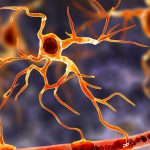- The purpose of this study was to explore the impact of COVID-19 on people with MS, as well as the impact on MS carers.
- A qualitative approach was used to develop themes to convey people’s experiences, and interestingly, the themes were similar for people living with MS, MS carers and loved ones, and the service providers delivering MS care.
- The researchers identified significant emotional and mental health impacts of the pandemic, as well as the beneficial development of resilience, which is important for managing future crises.
As the COVID-19 pandemic enters its fourth year, it is important to understand the impact the pandemic has had on people living with MS and MS carers. This is so that additional support can be identified and organised to ensure the best health and quality of life possible.
During the COVID-19 pandemic, many communities in Australia were affected by public health directives, such as lockdowns and restrictions on social interaction. As a consequence, usual MS healthcare services were altered or unavailable, and there was an increased reliance on telehealth.
There were both negative and positive effects from these changes across the MS community.
The aim of this study was to identify how the pandemic influenced the experiences of people living with MS, but also MS carers and loved ones, including changes to the care experience across both personal and medical/service perspectives.
The investigators, led by MS Australia-funded researcher Dr Helen Correia, were based in Perth, and study participants were located around Australia. The link to the free article can be found here.
How did the researchers go about this?
Three different groups of participants were recruited to the study, consisting firstly of 10 people living with MS across all age groups and types of MS, and varying levels of ability/disability. In addition, 10 carers/loved ones and seven MS service providers supporting health-related services to people with MS. The latter groups were included in the study to provide different perspectives of the experience.
Participants were interviewed over the telephone and invited to comment on the impact of COVID-19 personally, and to describe any changes to their care that they had experienced.
The researchers used a qualitative software package (called NVivo) to analyse the study data from the interviews. They applied established methods for robust qualitative research to develop codes and themes to present the story of the overall impact and experience of COVID-19 on the MS community in Australia.
What do the study findings tell us?
The findings of the study revealed several key themes. Firstly, the pandemic had direct challenges and impacts, such as personal and medical care disruptions, increased carer burden from fewer resources, fear of infections and social isolation, to name a few.
Telehealth was welcomed, but not always easy to use or adequate to cover what was needed. After all, physical and neurological examinations are an important part of an MS assessment. Emotions, such as fear, anxiety, stress, frustration and depression were reported, noting that resources for mental health support during this time were also under pressure.
Secondly, a theme of coping and adapting including creating space for taking breaks for carers, changing routines and activities by adapting to telehealth and maintaining physical health by doing different things than usual (i.e., replacing in-person physiotherapy with exercises at home or over the internet).
The third major theme was of appreciating positives and centred around strengthening relationships and becoming closer with carers and loved ones, the benefits of telehealth and technology, and appreciating those services which could be maintained. Words such as lucky, bonus, and thankfully peppered the interviews and demonstrated the appreciation and gratitude felt by the participants.
Interestingly, similar themes were reflected across all three groups of participants, and similar themes from this study have also been identified in studies in other countries.
How does this study enrich our understanding?
This research study has focused on exploring the impacts of COVID-19 from different perspectives, not just people living with MS, but also carers and loved ones. As a result, the study findings have several important implications.
Firstly, the value of MS networks, recognising them as a valuable resource in the event of future crises and stressful events.
Secondly, being prepared for the future requires strong investment into carer-centred interventions that improve carer resilience and enhance their well-being.
Thirdly, the importance of coping and adapting can help build resilience, which service providers may overlook if only considering the challenges. In other words, coping and developing an adaptive response in a crisis can help build up the “resilience muscle”, resulting in enhanced skills for the person the next time they experience a crisis.
As Australia has experienced many different crises in the last few years in addition to COVID-19, such as bushfires and flooding, the new insights we have gained from this research can help inform the best care moving forward. This allows for better management of an unpredictable disease such as MS during unpredictable times.
For the latest information about COVID-19, vaccinations and MS, visit our COVID-19 and MS page.






